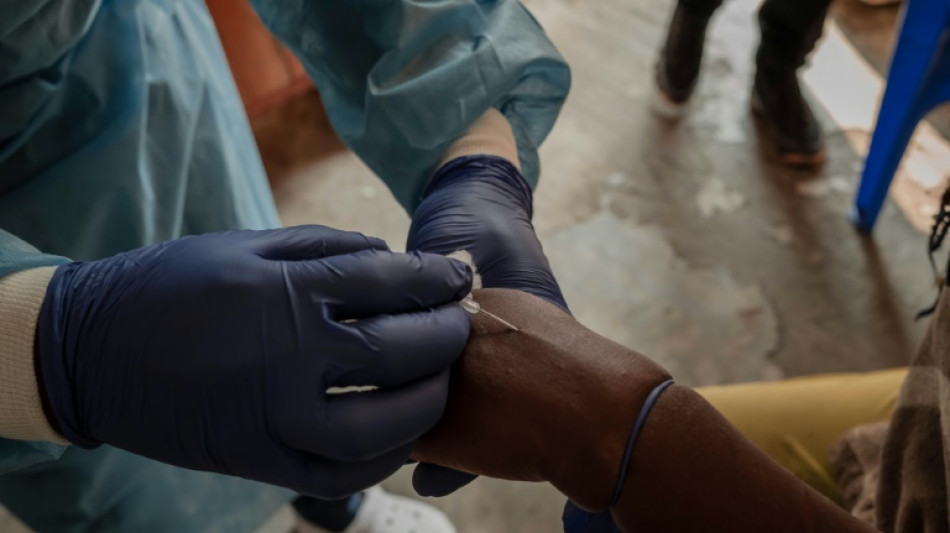
-
 Prince William plays football, volleyball in Rio on climate trip
Prince William plays football, volleyball in Rio on climate trip
-
Jamaicans mobilize aid in aftermath of Melissa's wreckage
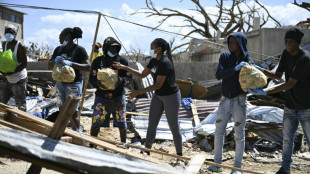
-
 Starbucks cedes China control to Boyu Capital
Starbucks cedes China control to Boyu Capital
-
'Wild at Heart' actress Diane Ladd dies at 89
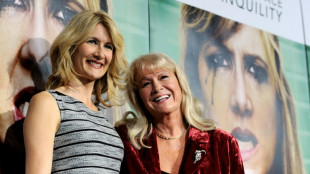
-
 Xhaka lifts Sunderland into fourth after Everton draw
Xhaka lifts Sunderland into fourth after Everton draw
-
Brazil records biggest annual fall in emissions in 15 years: report
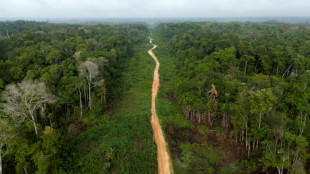
-
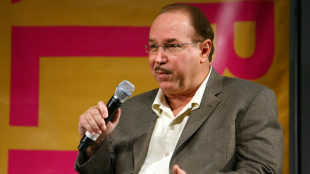 Victor Conte, mastermind of BALCO doping scandal, dead at 75: company
Victor Conte, mastermind of BALCO doping scandal, dead at 75: company
-
Trial opens in 1st US civil case on 2019 Boeing MAX crash
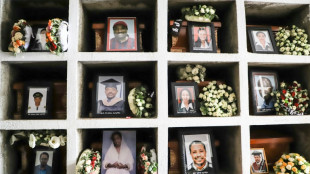
-
 Barrett brothers out of All Blacks' clash with Scotland
Barrett brothers out of All Blacks' clash with Scotland
-
Medieval tower partially collapses in Rome, trapping worker
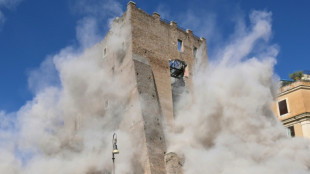
-
 Arsenal's Arteta says injured Gyokeres out of Slavia Prague tie
Arsenal's Arteta says injured Gyokeres out of Slavia Prague tie
-
Alonso says 'quality' Wirtz helped get him Real Madrid job

-
 US Fed's Cook warns inflation to stay 'elevated' next year
US Fed's Cook warns inflation to stay 'elevated' next year
-
Blue heaven: huge crowds salute Los Angeles Dodgers in victory parade

-
 Dutch centrist Jetten clinches election win: final tally
Dutch centrist Jetten clinches election win: final tally
-
Mamdani extends olive branch to anxious NY business community

-
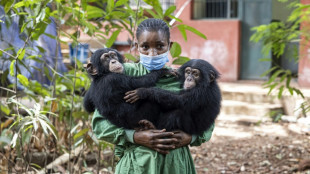 Sierra Leone chimpanzee sanctuary reopens after deforestation protest
Sierra Leone chimpanzee sanctuary reopens after deforestation protest
-
Shein bans sex dolls after France outrage over 'childlike' ones

-
 England full-back Steward doubtful for Autumn rugby clash with Fiji
England full-back Steward doubtful for Autumn rugby clash with Fiji
-
Bayern know how to 'hurt' PSG, says Neuer

-
 Rybakina downs Swiatek to reach WTA Finals last four
Rybakina downs Swiatek to reach WTA Finals last four
-
Ex-France international Ben Yedder to stand trial on rape charges

-
 Djokovic confirmed for ATP Finals, says Italian federation boss
Djokovic confirmed for ATP Finals, says Italian federation boss
-
Trent should be remembered for 'great' Liverpool moments, says Slot

-
 Stock markets diverge despite boost from AI deals
Stock markets diverge despite boost from AI deals
-
Prince William awed by Rio on climate-focused trip to Brazil

-
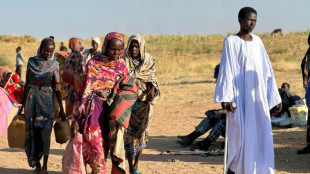 Violence in Sudan's El-Fasher could be war crimes, says top court
Violence in Sudan's El-Fasher could be war crimes, says top court
-
Rybakina downs Swiatek in WTA Finals

-
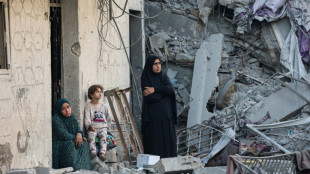 Turkey, Muslim allies say Palestinian self-rule key to Gaza future
Turkey, Muslim allies say Palestinian self-rule key to Gaza future
-
Tens of thousands shelter as typhoon slams into Philippines
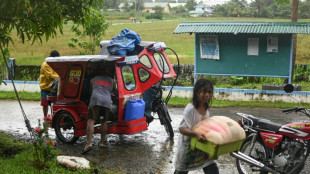
-
 Stock markets rise as tech sector buoyed by fresh AI deal
Stock markets rise as tech sector buoyed by fresh AI deal
-
Vitinha says PSG-Bayern Champions League clash will show who's 'best'

-
 Arsenal: The unstoppable Premier League force?
Arsenal: The unstoppable Premier League force?
-
Denmark inaugurates rare low-carbon hydrogen plant
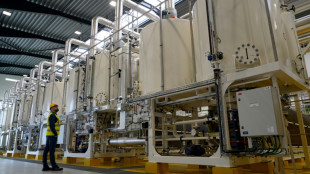
-
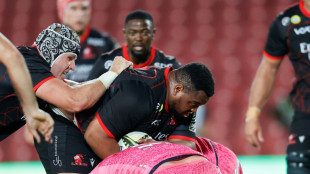 Springboks back Ntlabakanye call-up despite doping probe
Springboks back Ntlabakanye call-up despite doping probe
-
German plans to lower industrial power costs from January

-
 Christian, Muslim Nigerians push back on threatened US strikes
Christian, Muslim Nigerians push back on threatened US strikes
-
Nigeria's Rivers United paired with African champions Pyramids

-
 India women cricketers hail new era but challenges remain
India women cricketers hail new era but challenges remain
-
'Heroic' worker praised as man charged over UK train stabbings

-
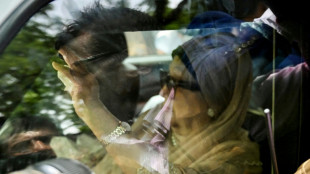 Bangladesh ex-PM Zia to contest elections: party
Bangladesh ex-PM Zia to contest elections: party
-
Tanzania president sworn in as opposition says hundreds killed in protests
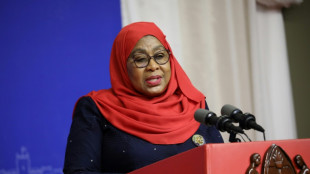
-
 India announces $5.75 million reward for women cricket World Cup winners
India announces $5.75 million reward for women cricket World Cup winners
-
Spain regional leader resigns, a year after deadly floods
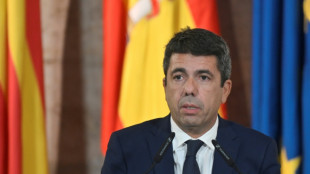
-
 Video game creators fear AI could grab the controller
Video game creators fear AI could grab the controller
-
France threatens Shein ban if 'childlike' sex dolls reappear

-
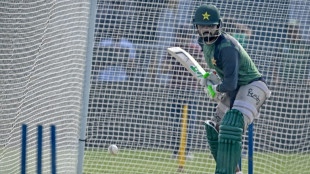 International cricket returns to Faisalabad with Pakistan-South Africa ODIs
International cricket returns to Faisalabad with Pakistan-South Africa ODIs
-
Afghan govt says quake kills 20, injures over 500
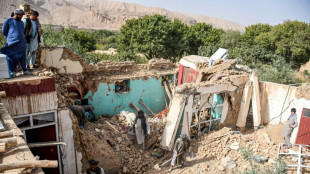
-
 'We're all too rich,' says photo legend Martin Parr
'We're all too rich,' says photo legend Martin Parr
-
Tanzania president inaugurated as opposition says hundreds dead
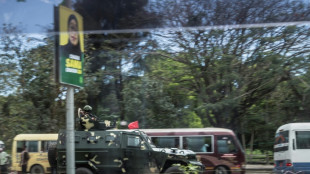
| RBGPF | -3.95% | 76 | $ | |
| SCS | -0.76% | 15.84 | $ | |
| AZN | -0.83% | 81.72 | $ | |
| NGG | -0.68% | 74.74 | $ | |
| RYCEF | 1.37% | 15.36 | $ | |
| BTI | 2.38% | 52.44 | $ | |
| BCC | -3.15% | 68.34 | $ | |
| RELX | -0.16% | 44.17 | $ | |
| CMSC | -0.34% | 23.67 | $ | |
| GSK | -1.1% | 46.35 | $ | |
| RIO | -1.95% | 70.37 | $ | |
| BCE | -0.84% | 22.67 | $ | |
| JRI | -0.14% | 13.88 | $ | |
| BP | -0.75% | 34.87 | $ | |
| CMSD | -0.38% | 23.9 | $ | |
| VOD | -5.89% | 11.38 | $ |

WHO seeks mpox vaccine production surge
The World Health Organization on Friday urged manufacturers to ramp up production of mpox vaccines to rein in the spread of a more dangerous strain of the virus.
The WHO on Wednesday declared the mpox surge a public health emergency of international concern -- its highest alert level -- with Clade 1b cases soaring in the Democratic Republic of Congo and spreading beyond its borders.
"We do need the manufacturers to really scale up so that we've got access to many, many more vaccines," WHO spokeswoman Margaret Harris told reporters.
The WHO is asking countries with mpox vaccine stockpiles to donate them to countries with ongoing outbreaks.
Two mpox vaccines have been used in recent years -- MVA-BN, produced by Danish drugmaker Bavarian Nordic, and Japan's LC16.
Harris said there were 500,000 MVA-BN doses in stock, while an additional 2.4 million doses could be produced quickly, if there was a commitment from buyers.
For 2025, an additional 10 million doses could be produced, upon a firm procurement request.
"LC16 is a vaccine that is not commercialised but produced on behalf of the government of Japan. There is a considerable stockpile of this vaccine," Harris added, saying the WHO was working with Tokyo to facilitate donations.
- 'Drop in the bucket' -
The Doctors Without Borders charity said countries with vaccine stockpiles but no outbreaks "must donate as many doses as possible" to affected countries in Africa.
It urged Bavarian Nordic to lower its prices, saying MVA-BN was out of reach for most countries where mpox is a threat.
The International Federation of Red Cross and Red Crescent Societies, the world's largest humanitarian network, said it faced significant challenges tackling mpox.
Bronwyn Nichol, IFRC senior public health emergencies officer, said most vaccine stocks were in wealthy nations, and those sent to Africa so far were "a drop in the bucket".
"There is a critical shortage of testing, treatment, and vaccines across the continent. These shortages are severely hampering the ability to contain the outbreak," she said.
- 'Complex picture' -
The WHO, headed by Tedros Adhanom Ghebreyesus, is due to issue temporary recommendations to countries on handling the mpox surge.
There are two subtypes of the virus: the more virulent and deadlier Clade 1, endemic in the Congo Basin in central Africa; and Clade 2, endemic in West Africa.
The upsurge in the DRC is being driven by outbreaks of two different Clade 1 strains, Tedros told a meeting Thursday of the UN health agency's Standing Committee on Health Emergency Prevention, Preparedness and Response.
The first is an outbreak in northwest DRC of what was previously known as Clade 1, now called Clade 1a. This outbreak is primarily affecting children and is spread through multiple modes of transmission, he said.
The second in northeastern DRC is a new offshoot of Clade 1 called Clade 1b, which was first detected in September last year and is spreading rapidly, mainly through sexual transmission among adults.
The spread of Clade 1b, and its detection in neighbouring countries, were the main reasons behind the WHO sounding its highest alarm.
"It's a complex picture, and responding to each of these outbreaks, and bringing them under control, will require a complex, comprehensive and coordinated international response," said Tedros.
T.Ziegler--VB




